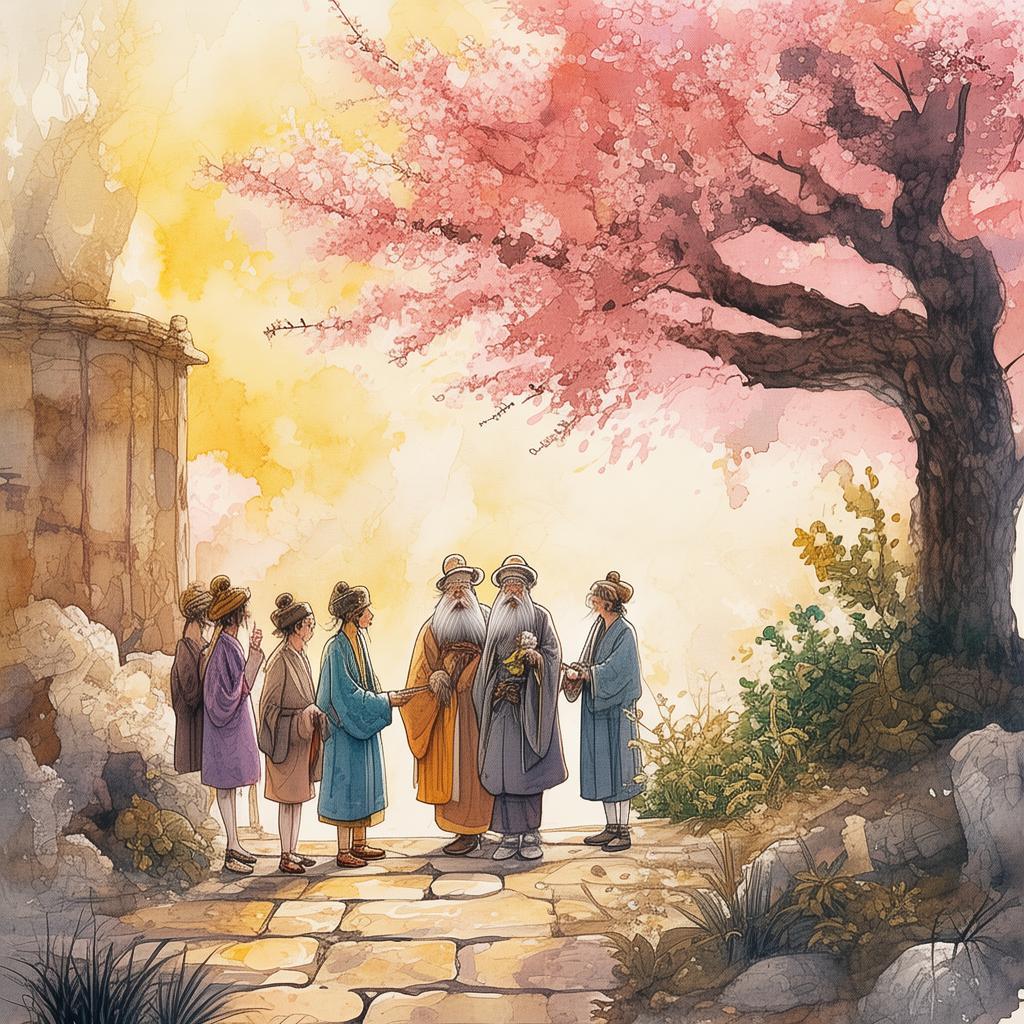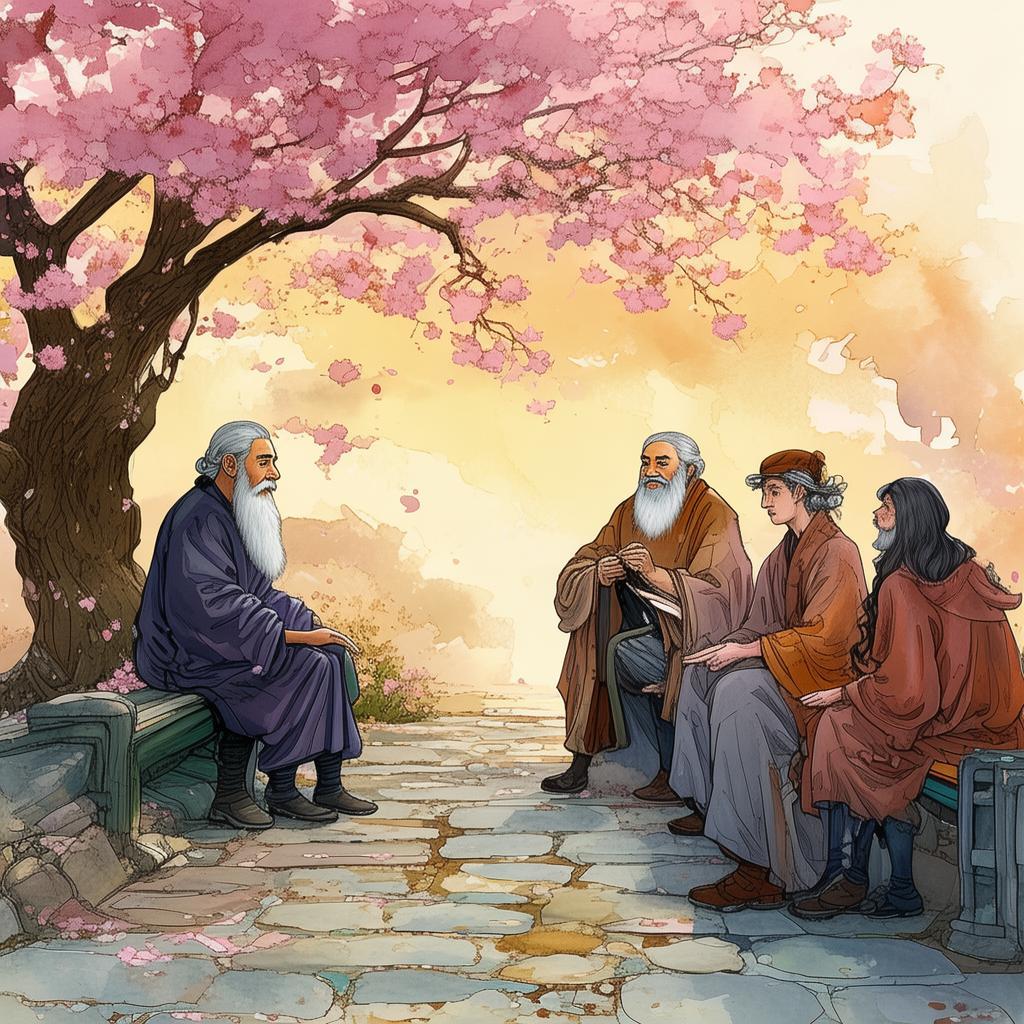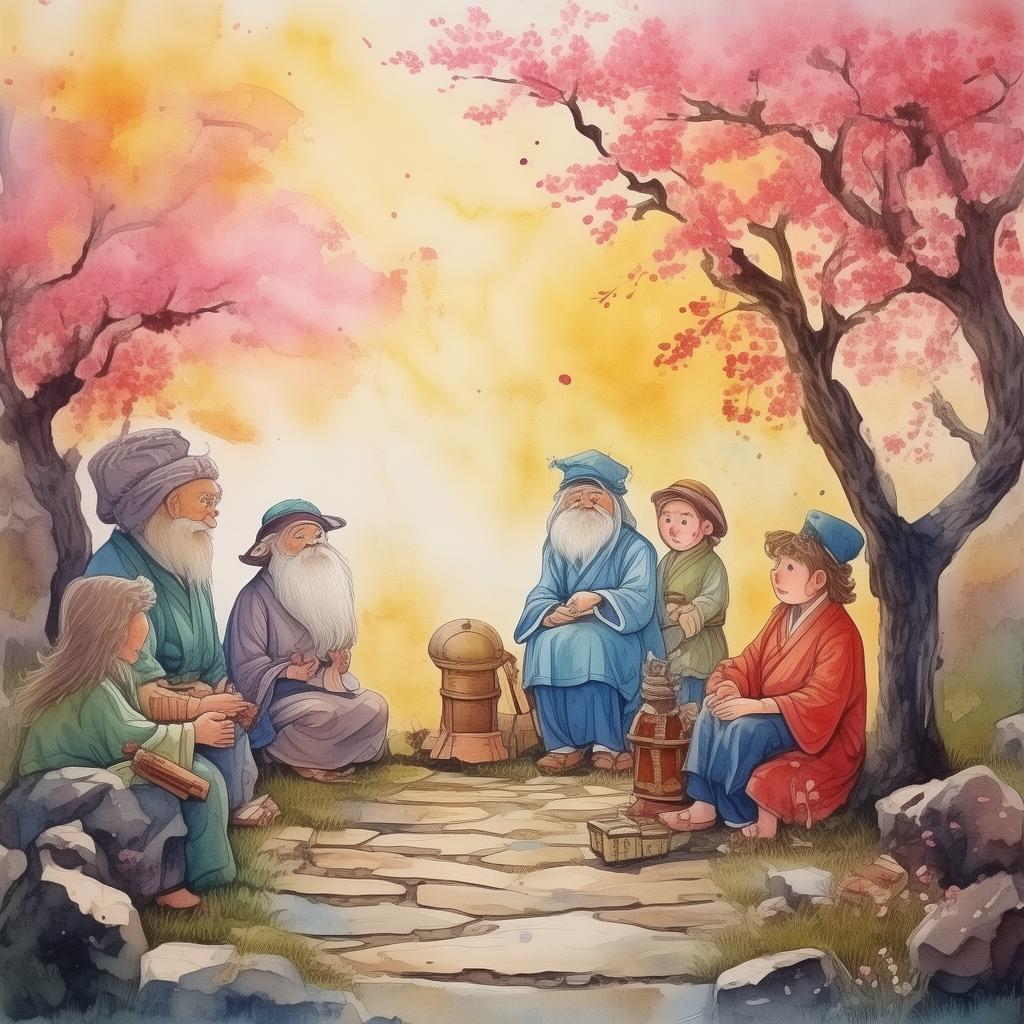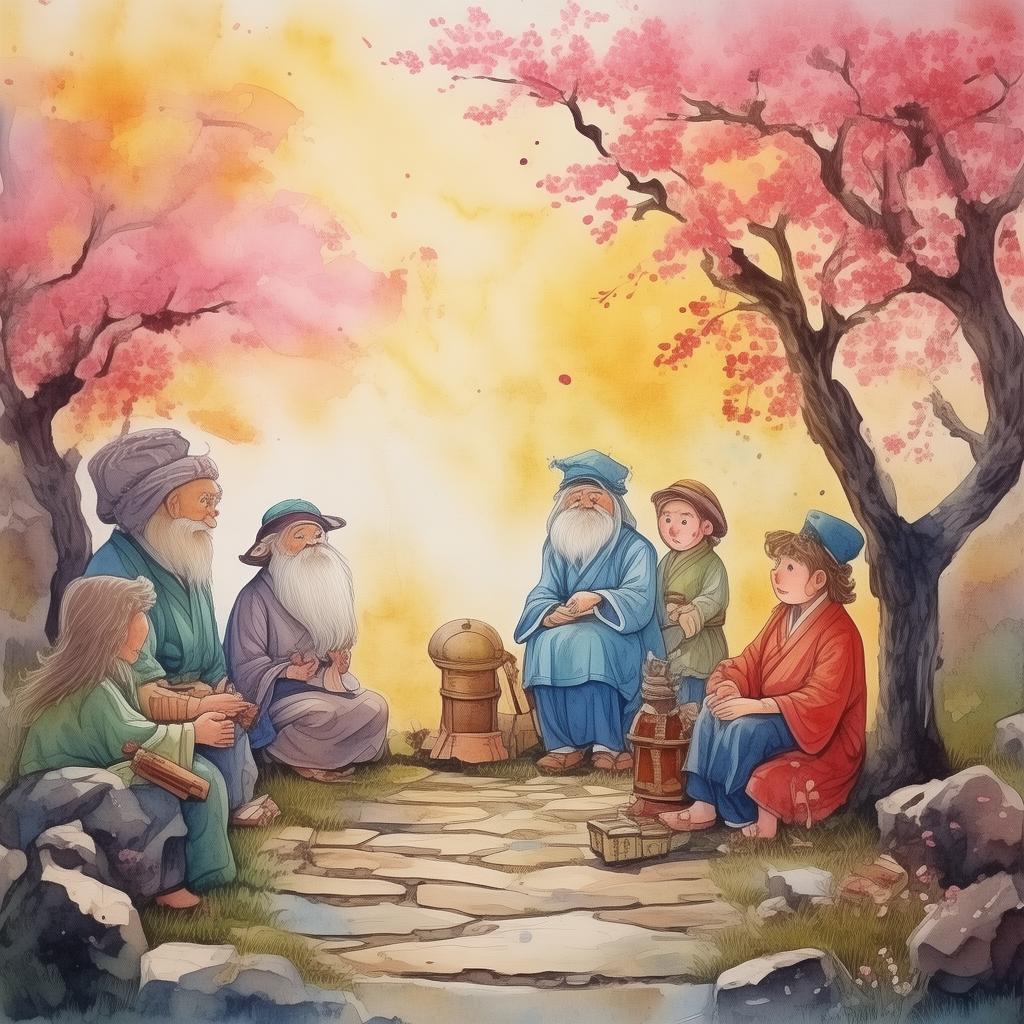The Chef's Culinary Crisis in the Starry Night of the Dead
In the heart of the ancient city of Lingtan, where the veil between the living and the dead was said to be thin, there lived a chef named Liang Ming. Known for his culinary prowess and ability to weave flavors into stories, Liang was a legend in the city. His restaurant, "The Starry Night," was a beacon of culinary excellence, its menu a tapestry of dishes that told tales of the world beyond the grave.
The night of the full moon, as it was known in Lingtan, was a time when the dead were said to roam the earth. Liang had always been fascinated by the legends and the rituals that surrounded this night, but he had never truly believed in the supernatural. Until now.
As the moon rose, casting a silver glow over the city, Liang received an anonymous letter. It was a simple note, yet it sent a shiver down his spine: "The Starry Night of the Dead is just the beginning. Your greatest culinary crisis lies ahead."
Unnerved but intrigued, Liang decided to embrace the night and prepare a special menu for his guests. He chose dishes that represented the afterlife, hoping to honor the spirits that were believed to walk the earth on this night. But as the evening progressed, strange things began to happen.
First, the kitchen staff started to experience odd occurrences. Utensils moved on their own, and the fire in the stove would flicker unpredictably. Liang dismissed it as a fluke, attributing it to the stress of the night. However, as the hours passed, the anomalies grew more frequent and intense.
The most disturbing event occurred when Liang was preparing a dish that was meant to represent the afterlife's eternal peace. He sliced into the dish and watched in horror as a face, twisted in fear, appeared in the center. His staff gasped, and the guests, already on edge due to the strange atmosphere, began to whisper and scatter.
Liang's mind raced. He had never seen anything like this before. Could it be that the letter was true? Was this a supernatural challenge, or was it something more sinister? Determined to save his restaurant's reputation and his own sanity, Liang sought the help of his oldest friend, an elderly herbalist named Master Chen.
Master Chen, a man who had spent his life studying the mysteries of the world, agreed to help. Together, they began to unravel the mystery. They discovered that the city of Lingtan had been the site of a great tragedy centuries ago, where a group of chefs had been cursed for their greed and disrespect of the dead. The curse had been broken, but the remnants lingered, bound to the city and its culinary traditions.
As they delved deeper, Liang and Master Chen learned that the spirit of the chef who had been cursed was now haunting "The Starry Night." The spirit sought redemption and a way to lift the curse, but it was trapped within the very essence of the restaurant's legacy.
With Master Chen's guidance, Liang realized that the key to breaking the curse lay in the very dishes he had prepared. Each dish represented an aspect of the chef's life and legacy, and by understanding the spirit's desires, Liang could set it free.

The climax of the story came as Liang, under the guidance of Master Chen, prepared a final dish that would represent the spirit's journey from despair to peace. As he placed the dish in front of the guests, the spirit of the cursed chef emerged, a ghostly figure that had been haunting the restaurant for centuries.
In a dramatic twist, Liang discovered that the spirit was his own ancestor, a chef who had been cursed for his greed and neglect of his family. Through the power of his culinary art and the understanding of his ancestor's pain, Liang was able to break the curse and free the spirit.
The restaurant's patrons, who had been witnesses to the supernatural events, were left in awe. Liang's reputation was restored, and "The Starry Night" became a place of reverence and peace. The legend of the chef's culinary crisis in the Starry Night of the Dead was told for generations, a testament to the power of understanding and forgiveness.
In the end, Liang Ming learned that the greatest culinary crisis was not the supernatural events that had befallen his restaurant, but the realization that the true power of cooking lay in the connection between the soul of the chef and the souls of those who ate his creations.
✨ Original Statement ✨
All articles published on this website (including but not limited to text, images, videos, and other content) are original or authorized for reposting and are protected by relevant laws. Without the explicit written permission of this website, no individual or organization may copy, modify, repost, or use the content for commercial purposes.
If you need to quote or cooperate, please contact this site for authorization. We reserve the right to pursue legal responsibility for any unauthorized use.
Hereby declared.









